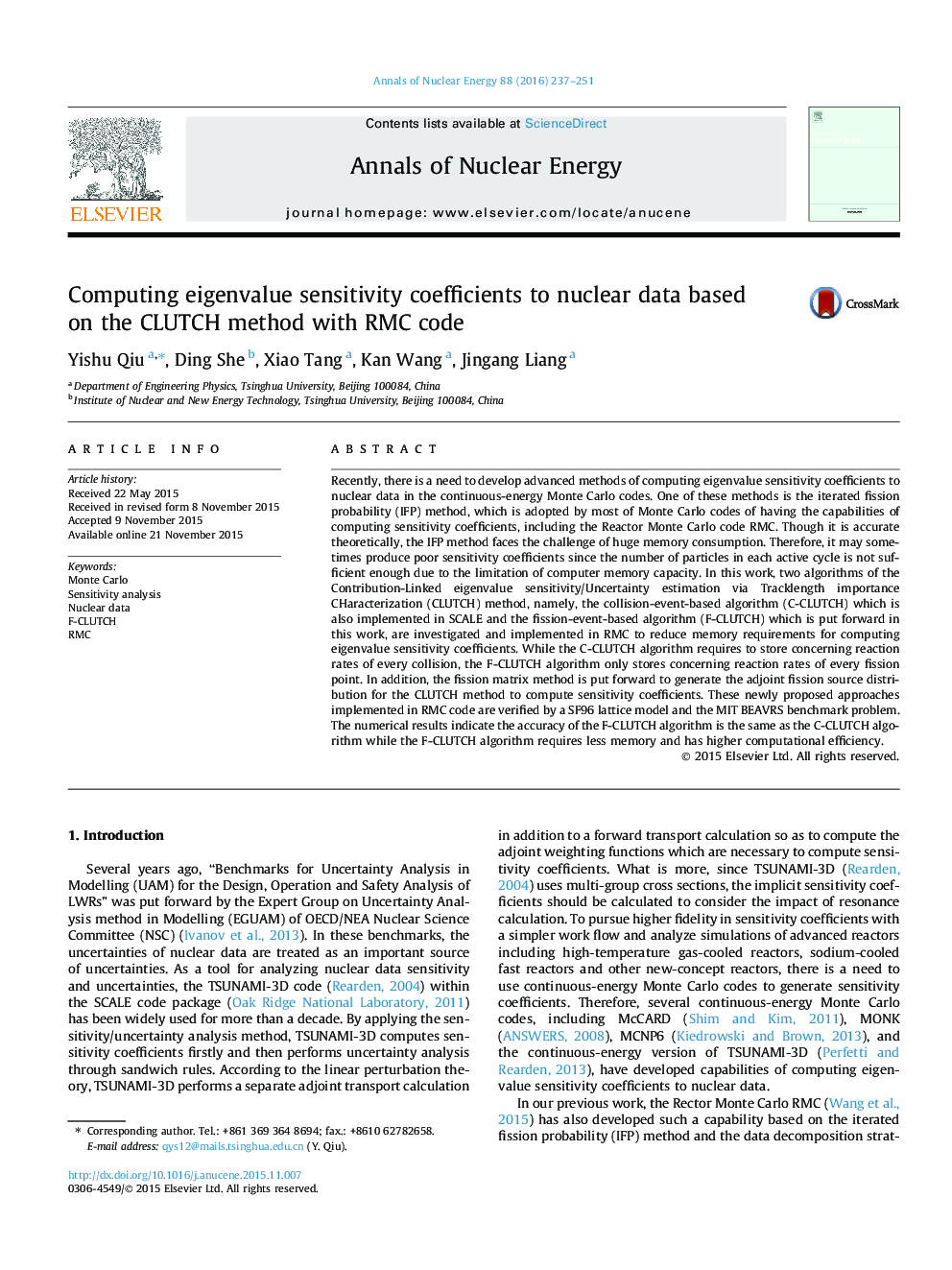| Article ID | Journal | Published Year | Pages | File Type |
|---|---|---|---|---|
| 8067919 | Annals of Nuclear Energy | 2016 | 15 Pages |
Abstract
Recently, there is a need to develop advanced methods of computing eigenvalue sensitivity coefficients to nuclear data in the continuous-energy Monte Carlo codes. One of these methods is the iterated fission probability (IFP) method, which is adopted by most of Monte Carlo codes of having the capabilities of computing sensitivity coefficients, including the Reactor Monte Carlo code RMC. Though it is accurate theoretically, the IFP method faces the challenge of huge memory consumption. Therefore, it may sometimes produce poor sensitivity coefficients since the number of particles in each active cycle is not sufficient enough due to the limitation of computer memory capacity. In this work, two algorithms of the Contribution-Linked eigenvalue sensitivity/Uncertainty estimation via Tracklength importance CHaracterization (CLUTCH) method, namely, the collision-event-based algorithm (C-CLUTCH) which is also implemented in SCALE and the fission-event-based algorithm (F-CLUTCH) which is put forward in this work, are investigated and implemented in RMC to reduce memory requirements for computing eigenvalue sensitivity coefficients. While the C-CLUTCH algorithm requires to store concerning reaction rates of every collision, the F-CLUTCH algorithm only stores concerning reaction rates of every fission point. In addition, the fission matrix method is put forward to generate the adjoint fission source distribution for the CLUTCH method to compute sensitivity coefficients. These newly proposed approaches implemented in RMC code are verified by a SF96 lattice model and the MIT BEAVRS benchmark problem. The numerical results indicate the accuracy of the F-CLUTCH algorithm is the same as the C-CLUTCH algorithm while the F-CLUTCH algorithm requires less memory and has higher computational efficiency.
Related Topics
Physical Sciences and Engineering
Energy
Energy Engineering and Power Technology
Authors
Yishu Qiu, Ding She, Xiao Tang, Kan Wang, Jingang Liang,
